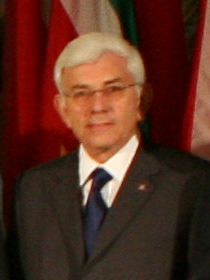A Quote by Peter Drucker
Growth that adds volume without improving productivity is fat. Growth that diminishes productivity is cancer.
Related Quotes
My advice would be, as you consider fiscal policies, to keep in mind and look carefully at the impact those policies are likely to have on the economy's productive capacity, on productivity growth, and to the maximum extent possible, choose policies that would improve that long-run growth and productivity outlook.



































